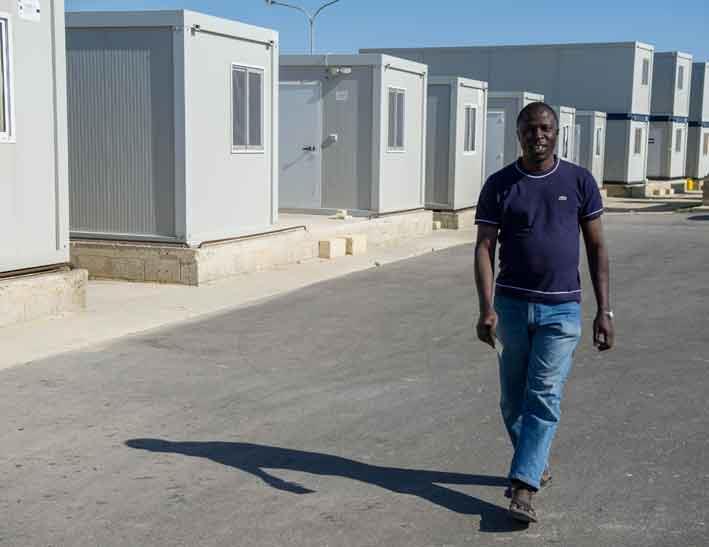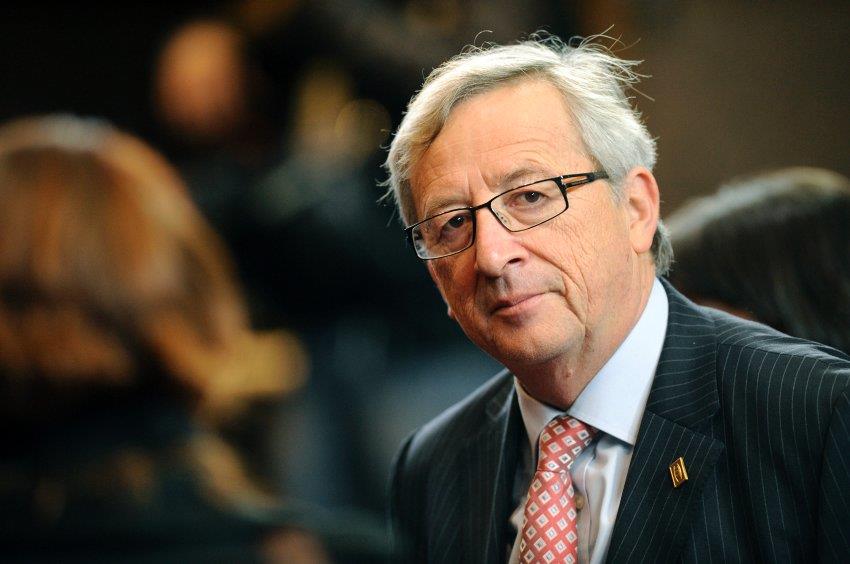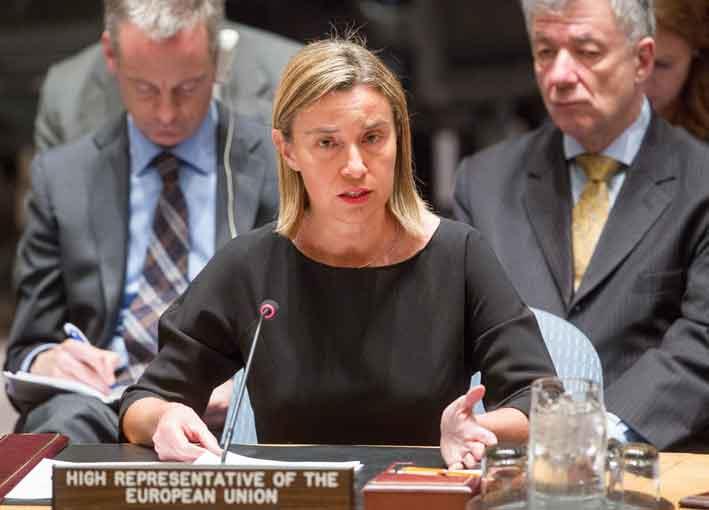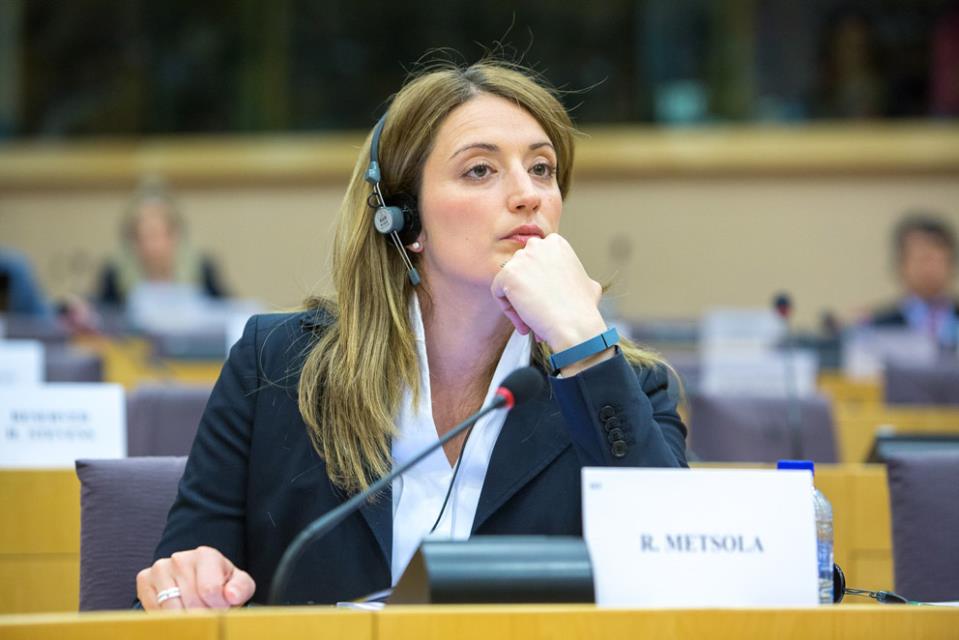The European Commission is proposing the emergency relocation of up to 40,000 asylum seekers from Italy and Greece in the first measures to be adopted under the European Agenda on Migration it adopted earlier this month.
The Commission has said that it would be ready to do the same if other member states face a sudden influx of migrants, specifically mentioning Malta as its sole example. At present, however, Malta is not deemed to be in need of emergency measures since the vast majority of asylum seekers rescued in its vicinity have been going to Italy.
The proposed scheme - which would need to approved by EU member states in the European Council - would apply specifically to Syrian and Eritrean nationals in need of international protection that arrived in either Italy or Greece after 15 April.
A total of 24,000 persons from Italy and 16,000 persons from Greece should be relocated over the next two years - corresponding to approximately 40% of the total number of asylum seekers in clear need of international protection who entered these countries in 2014.
These persons' destination is calculated according to a distribution key which takes into account various factors, including countries' population and economy.
 Under the proposed system, Malta itself would take up a total of 292 asylum seekers - 175 from Italy and 117 from Greece. With the exception of Cyprus, every other country would receive a greater number of asylum seekers, and member states would receive €6,000 for each person relocated on their territory.
Under the proposed system, Malta itself would take up a total of 292 asylum seekers - 175 from Italy and 117 from Greece. With the exception of Cyprus, every other country would receive a greater number of asylum seekers, and member states would receive €6,000 for each person relocated on their territory.
The Commission has also adopted a recommendation asking member states - including Greece and Italy - to resettle 20,000 people in clear need of international protection from outside of the EU over the next two years, again on the basis of a distribution key. Based on this formula, Malta would receive 121 asylum seekers from outside of the EU.
Member states who participate in this resettlement scheme would be entitled to financial support, with the EU making €50 million available in 2015-16.
The measures adopted by the European Commission today also include an EU action plan against migrant smuggling for the years 2015-2020. Proposed actions include the setting up of a list of suspicious vessels, dedicated platforms to enhancing cooperation and exchange of information with financial institutions, and cooperation with internet service providers to ensure the swift detection and removal of any internet content used by smugglers to advertise their activities.
The Commission has also published guidelines on the systematic fingerprinting of asylum seekers on arrival, which is deemed crucial for the effective functioning of the EU's common asylum system, and it has launched a public consultation on the future of the EU Blue Card scheme, which aims to make it easier for highly skilled people to migrate to the EU but which remains scarcely used.
 'We have learned from the experiences of Malta'
'We have learned from the experiences of Malta'
The proposals are the result of an action plan whose origins date back to Commission President Jean-Claude Juncker's two-day visit to Malta in May 2014, when the Luxembourgish politician was still campaigning for his present post.
During that visit, Mr Juncker had actually presented his vision in an article published in the 2 May edition of The Malta Independent, in which he highlighted that "Europe has a responsibility towards Malta, as it has a responsibility towards Italy, Greece, Cyprus and Spain."
"We cannot have common borders if only some have to bear the cost - it is a question of solidarity. And I am convinced that we need more European solidarity in immigration policy," Mr Juncker had written then.
As the College of Commissioners met today, Mr Juncker made the point that the Commission wanted to help Malta, stating that "we have learned from the experience of Malta."
The proposed emergency mechanisms are a first for the Commission, which is pledging to propose the same measures to help Malta if it is deemed necessary.
"Today the Commission is matching words with action," the Commission's First Vice-President Frans Timmermans said today.
"Solidarity goes hand in hand with responsibility. This is why our proposals include the strong requirement that asylum rules are properly applied, and that member states do everything they should to prevent abuse. Everyone who needs sanctuary should find it in Europe. But those who have no justified claim should be quickly identified and returned to their home country. This is essential for migration policies to be well accepted in society."
 High Representative Federica Mogherini highlighted that the main aim of the proposals was to "quickly save lives and provide protection in the EU for people in need, be they at sea, in the EU or in third countries."
High Representative Federica Mogherini highlighted that the main aim of the proposals was to "quickly save lives and provide protection in the EU for people in need, be they at sea, in the EU or in third countries."
"For this reason, we are intensifying our cooperation with countries of origin and transit and with countries hosting refugees, not only to support asylum and migration capacities, but also to tackle the root causes that force people to escape and migrate: poverty, wars, persecutions, violations of human rights and natural disasters."
On his part, Migration Commissioner Dimitris Avramopoulos said that "the relocation and resettlement schemes, together with the strengthening of Triton and Poseidon and the Action Plan to fight smugglers, respond to the most urgent challenges we are confronted with."
EPP urges member states to take swift decision on proposals
The Commission's proposals were welcomed by the European People's Party group within the European Parliament, which called on the Home Affairs Ministers of EU member states to implement them swiftly.
"The solidarity mechanism for the distribution of refugees is a step in the right direction," EPP group coordinator in the EP's Civil Liberties, Justice and Home Affairs Committee (LIBE) Monika Hohlmeier said.
"Even those EU countries which do not yet take any refugees must show solidarity and humanity. However, the corrective factor of 10 percent (applied inversely) for the number of asylum applications received and the resettlement places already offered in the past 5 years is not acceptable. This percentage is too low for some countries, like Germany or Sweden. Moreover, refugees who travel from one member state to another would not fall under this solidarity mechanism as proposed by the Commission. I believe they should. Every day hundreds of refugees travel directly from Italy to Germany," she added.
 In her own remarks, the EPP's deputy committee coordinator Roberta Metsola said that the proposals were "an emergency response to an emergency situation in Italy and Greece"
In her own remarks, the EPP's deputy committee coordinator Roberta Metsola said that the proposals were "an emergency response to an emergency situation in Italy and Greece"
"It is an acknowledgment that this is a European challenge that deserves a European response by every member state acting in solidarity. This is the first step and should be followed by a permanent system which is expected to be proposed later in the year," Dr Metsola maintained.
"A relocation system is one part of a holistic approach to migration. It must go hand in hand with other measures and we hope that this will signal the beginning of a reform of EU rules on migration and asylum that would mean that Mediterranean countries are no longer faced with a disproportionate responsibility once people are rescued from the sea."